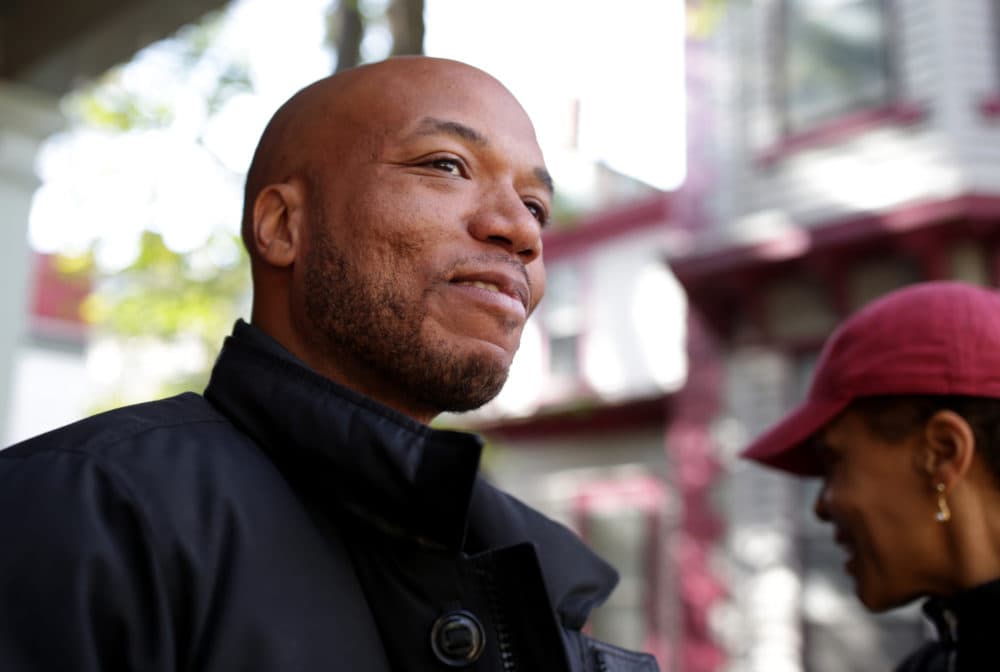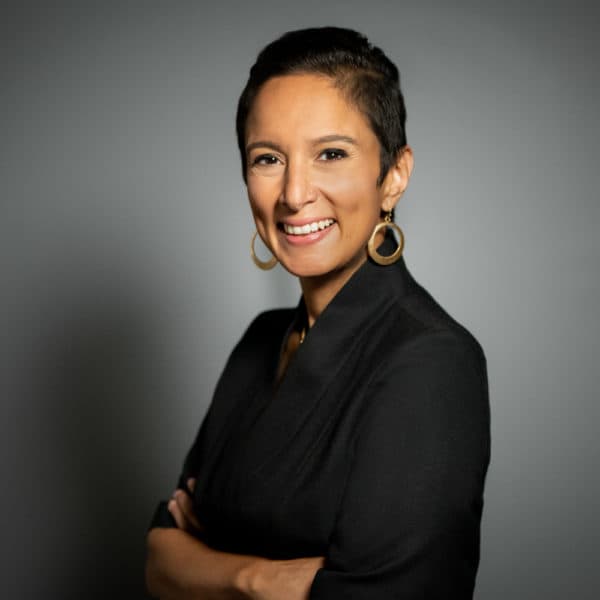Advertisement
Boston's outgoing public safety adviser reflects on how violence in the city has changed in 5 years
Resume
As Boston's senior adviser for public safety prepares to step down, he is reflecting on how violence in the city — and his role in responding to it — has changed since his tenure began in 2018.
Rufus Faulk, who was appointed by former Mayor Marty Walsh, will be replaced by his friend and mentee Isaac Yablo.
Faulk joined WBUR's Morning Edition host Rupa Shenoy to discuss those reflections, and his hope for the future of the position under Yablo.
Highlights from this interview have been lightly edited.
Interview Highlights
On how public safety and violence changed in Boston during his tenure
"Traditionally, a lot of the violence that was sort of gang-centric was led by some of the older, traditional gangs — whether it be from housing developments or from established side street. What we've sort of seen now is that a lot of this violence has been more centered around social media interactions, rap music and oftentimes, interpersonal conflicts, versus these really big group dynamics."
On how the city has adjusted to those changes
"The approach now is definitely built on trying to make sure that we are not only working with the individuals impacted, but have a holistic approach — that we're also working with entire families and communities, recognizing that there are a lot of factors that lead to violence, whether it be poverty, whether it be issues around mental health, undiagnosed or untreated trauma."
On the emotional impact of the job
"It's incredibly heart-wrenching. Just for me, I started doing this work in summer 2004. I was 22 years old; now I'm 41. And to be honest with you, with every incident — no matter how much progress that you make — every incident where there's a loss of life or there's a shooting can bring you right back to the first incident that you remember, either as a service provider, or as a kid growing up."
On how violence is declining overall in the city, but still disproportionately occurs in communities of color
"The reality is that the numbers are going down. But if you live on Humboldt Avenue, like I lived for so many years, it doesn't feel like that. If you live in a neighborhood that has over the last 15 years dealt with shootings every summer, or in the last 15 years has experienced five homicides, it feels like you're on a sort of constant cycle of violence, and we have to do something as the city of Boston to make sure that the experiences of young people, young adult and adults in the city is not determined by the zip code you live under."
On whether the flow, number or types of guns in the city have changed
"We're seeing more guns with high capacity magazines, incidents where you can have multiple shots fired, in terms of 10,15, 20 rounds on scenes. And these are things that we weren't seeing in the '90s or in the early 2000. There are things like ghost guns, where folks are putting the components of guns together and then creating their own guns."
On Isaac Yablo's taking the reins, and what he hopes for Yablo's tenure
"Isaac definitely has a lot of experience, in particular, looking around data and how data can really hone in and focus us in on service delivery so we can really be directly addressing some of the risk factors. I think we'll see the greatest change and the greatest improvement of quality of life if we are really focused on those communities most directly impacted — and we know who those communities are. They've been the same communities that have been impacted for the last 30 years"
This segment aired on February 3, 2023.
